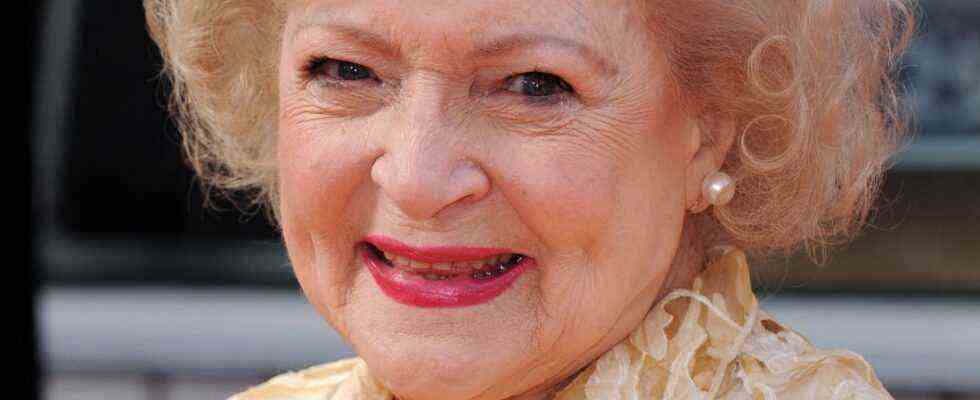When Betty White was born, the television that would make her world famous didn’t even exist. The actress was born in 1922 in the small town of Oak Park, a suburb of Chicago. The father sold radios during the Great Depression to keep the family afloat. When the parents later moved to Los Angeles with her, the only child, and television celebrated its triumphant advance in the country, it was above all “a magic box”. This is what White called the TV sets that ended the entertainment monopoly of the cinema and became a mass medium in the 1950s. She was there from the start. Even in those gold rush times, that meant glamor, but above all: messing around.
White had started acting in Beverly Hills High School. In 1945 she made her first appearance in front of the camera in an educational film made by the federal government about the reintegration into working life of the US soldiers who had fought in World War II. This was followed by first engagements with local television stations in Los Angeles. Among other things, she was the funny sidekick on a show that was broadcast five hours a day, five days a week – live.
She had nothing against acting classes – “but it’s just nothing for me”
Those years were White’s comedy boot camp. There were and are many colleagues who could act better than she was, she liked to emphasize that; but White acquired her unerring sense of timing back then – and that’s more important than anything else in comedy. “I have nothing against people who take acting classes,” she said. “But I prefer to take the matter naturally.”
The heroines of the series “Golden Girls” in 1985: Estelle Getty, Rue McClanahan, Bea Arthur and Betty White.
(Photo: Nick Ut / dpa)
The result was a career that lasted nearly seventy years. White was often a pioneer. When she took on the female lead on the 1952 sitcom “Life With Elizabeth” about a newly married couple, she was also involved as a co-producer on the series over the course of two seasons. A woman as a producer meant an absolutely exotic status in Hollywood in the fifties.
After many smaller and larger roles, she was an integral part of the popular “Mary Tyler Moore Show” in the 1970s, which the great comedy director James L. Brooks (“It couldn’t be better”) had come up with. But it only became legendary with the sitcom “Golden Girls”, which was filmed from 1985 to 1992 and which became one of the most important export goods for US television at the time.
Today the comedy about a senior citizen flat share in Miami may seem a bit old-fashioned. But the series was quite subversive for American television. First, because unlike many other comedy formats, it was really funny; and second, because the makers touched on topics that had nothing in common with the young, heterosexual target group that advertisers preferred to address: homosexuality, poverty, sex in old age. White went down in popular culture in the role of Rose, even though she was originally intended for one of the other roles. She should have played the promiscuous Blanche, but Rose found the funnier role in her apparent constant naivete.
The fame of this series secured her an ample number of guest roles, from “The Simpsons” to “Ally McBeal” to “Toy Story 4” – she performed well into her nineties. Pension? No thank you. Age, she liked to say, was not something to worry about all the time. All those thirty or forty-year-olds who couldn’t get out of their whining, that was ridiculous.
On December 31st, Betty White, who would have turned 100 in a few weeks, died at the age of 99.

